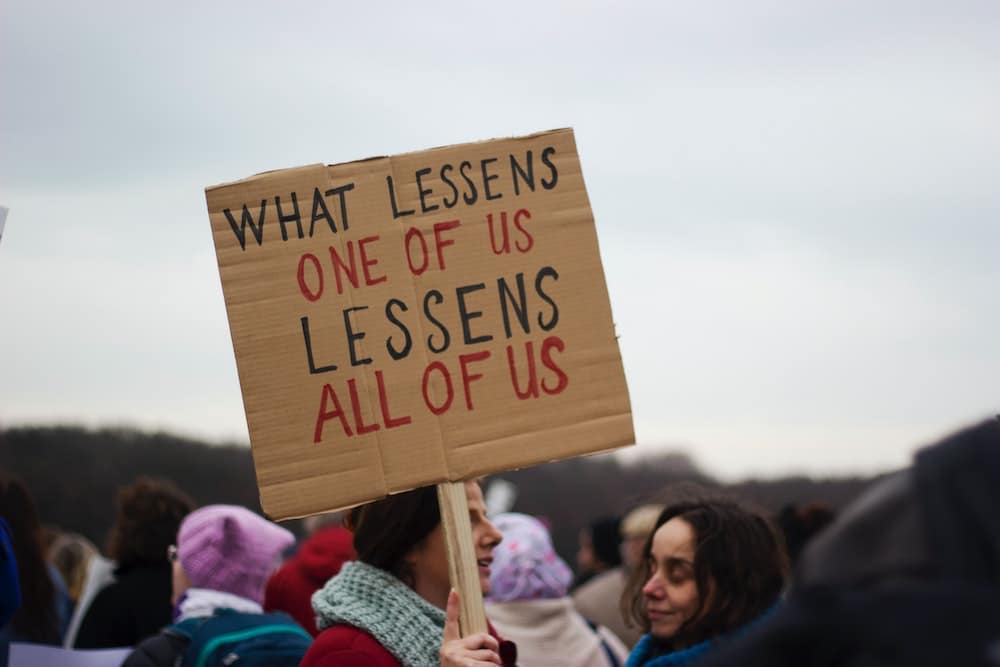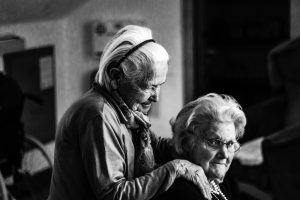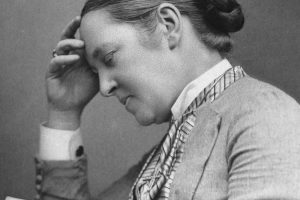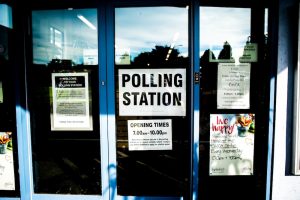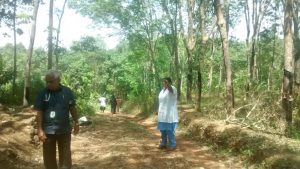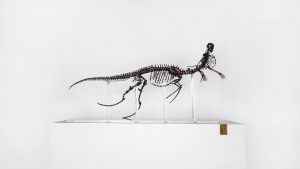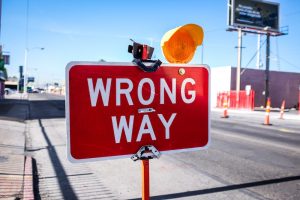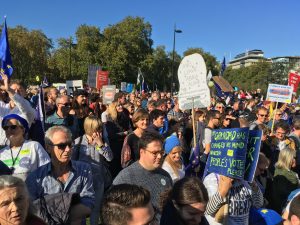How has increasing workload impacted on GPs, and our sense of providing safe care to our patients? Nada Khan finds that research into workload and safety suggests an association between wellbeing, burnout and patient safety.
Health experts and politicians have warned for over 170 years that health inequality is killing those in the most deprived parts of society. We now witness the poorest in society disproportionately dying of COVID-19, suggesting that the social murder observed by Engels
The new GP contract in England now recognises the necessity for clinical pharmacists to ensure the optimal use of medicines for patients within all primary care networks. What about the benefits to the wider healthcare team within general practice?
Everyone of us in the health service has overheard unacceptable rudeness, sly put-downs, exclusion or smiling say-the-opposite-of what-you-mean British insincerity. We need to acknowledge that it is happening. There is no mysterious genetic or melanin fault causing excess deaths among health workers
How much does it take for us to genuinely express sorrow and compassion for the terrible trials our patients endure? We have pride in the NHS but we have prejudice too. Perhaps it is the NHS clinician that is Icarus, flying too
An individual working as a GP runs the risk of becoming an automaton. Evidence-based medicine and professional standardisation contribute to uniformity and by definition a reduction in diversity. Camus says that “if the world were clear, art would not exist” and I
Some reflections on retirement... Ours is a great community. I look back with thanks, but forward with both compassion for the world and belief in our ability to be better than this. And in a deeper parallel, just as we as individuals
Decision fatigue is something we have all experienced. We each have a finite amount of mental energy that we can expend on decision making before our brain starts to look for a shortcut. Decision fatigue is also a well recognised reason behind
As a 20-something millennial GP trainee, the sudden talk about the future of primary care is exciting. I once heard a futurologist say, “Don’t ask ‘what will it look like down line?’ ask ‘what do you want it to look like?’” I
The many and varied consequences of COVID-19 are felt disproportionally by those with less resources, both external and internal. We would do well to establish Far End practices and networks akin to our Deep End siblings. We should reach out to the
The Changing Face of Medicine project is gathering momentum. As President of the BMA, Professor Pali Hungin launched a project to look into the impact of fast moving technological advances, the shifting role of the doctor, the adequacy of medical education, the
Throughout the last century we have witnessed major advancements for women in the UK, but gender inequalities continue to exist in the workplace. The NHS, established with the intent to treat everyone equally, is no exception. On average, female GPs — who
When I first qualified as a physician associate (PA), I had no intention to work in general practice, at least until later in my career. I was unsure of the impact a PA could have in a GP setting prior to the
David Misselbrook was a South London GP for 30 years. He was involved with GP training, CPD development and medical ethics. He now teaches Family Medicine and ethics for RCSI Bahrain. According to House, “patients lie”. Well, I guess most humans lie.
Dr Katie Barnett is a Post CCT Fellow with Haxby Group Practice in York and an Honorary Clinical Fellow in the Department of Health Sciences at the University of York. She is on Twitter @drkatiebarnett1 and blogs about wellbeing and fellowship at:
Peter Aird is a GP in Bridgwater, Somerset. Judy Garland’s was not a happy life. Last weekend I went to see Renée Zellweger in ‘Judy’. It’s a remarkable performance in a film that portrays Judy Garland towards the end of her tragically
Rachel Handscombe is a GP partner in Derbyshire. She is an activity enthusiast and is keen to share the benefits of exercise to those she meets. I wore my 100 parkrun t-shirt to work today. I was curious as to what my
Philippa Jeacocke is an ST3 GP trainee in Sheffield. She has just returned from a year out of training, during which she worked in a variety of settings exploring her interests in refugee heath and palliative care. Nandika has a huge, beaming
Peter Aird is a GP in Bridgwater, Somerset. There’s a scene in Stan and Ollie, the film about Laurel and Hardy when towards the end of the film, Hardy says to Laurel: “I’ll miss this when we’re gone”. He speaks the words,
Peter Aird is a GP in Bridgwater, Somerset. General practice – the story so far: Last week many of us tried to satisfy our appraisers by proving that we had met their unilaterally determined and arbitrarily applied indicators of satisfactory professional development.
Peter Aird is a GP in Bridgwater, Somerset. Not so long ago, a school uniform committee was set up at the local educational establishment frequented by my children. Predictably enough, though nobody seemed to have a problem with the previously requisite attire,
Adam Staten is a GP in Milton Keynes and is on Twitter @adamstaten. In the last forty years there have been at least fifteen major structural reforms to the NHS. These have frequently been cyclical, rapidly and incoherently implemented, with very little
Paul Roberts was a GP for 30 years in Rochdale then Stoke-on-Trent. He is chair of Willow Bank CIC (a social enterprise delivering primary care) and a director of North Staffordshire GP Federation. It doesn’t happen very often, but it is recognisable
Tim Senior is a GP in Australia and a BJGP columnist. Fans of Douglas Adams will recognise the scene.[footnote]Adams D (1982) Life, the universe and everything (Pan Books Ltd, London).[/footnote] There’s a spaceship landed at Lords cricket ground, but no one notices
Peter Aird is a GP in Bridgwater, Somerset. If there is one thing that is common to all patients that consult us, it is that they want things to be better for them than they currently are. They would like us to
Michael Bryant is a GP who splits his time between South Wales and West Africa, where he works in paediatrics and as a medical educator. A J Cronin’s classic novel The Citadel is often credited as being partially responsible for the founding
Peter Aird is a GP in Bridgwater, Somerset. How about impressing your appraiser with this as one of your PDP goals for the coming year: ‘Be drunk’. Charles Baudelaire (1821 – 1867) wrote: “You have to be always drunk. That’s all there
When you were the patient – how was it for you? An ancient Chinese proverb states: “No one can be a good doctor without first having been ill themselves.” We have recently published a book ‘What’s in a Story? Lessons from reflections
Peter Aird is a GP in Bridgwater, Somerset. It is a truth universally acknowledged that fast and cheap won’t be good. Because good things take time to mature – they come about slowly. Be it a fine wine, a meaningful relationship or
Peter Burke is currently a portfolio GP in Oxford. A potted bio with declaration of interests is available at the end of the article. The Romans had a word, decimation. Decimation meant that if a Legion rebelled, one in ten soldiers, regardless
Philippa Jeacocke is a GP trainee in Sheffield currently taking a year Out of Programme Experience (OOPE) between ST2 and ST3 to further explore her interest in refugee health and palliative care. In August 2018 I spent a month working as a
Peter Aird is a GP in Bridgwater, Somerset. Recently The Guardian, and others, reported that doctors were alarmed that an online test which estimated cardiological health revealed that 78% of adults had a heart age older than their chronological age and were,
Luke Allen is a GP academic clinical fellow at Oxford University. A coffee-break conversation about flexible part-time working and relational continuity Sam (early-mid career GP): Hey, can I grab you for a minute to talk about my hours? Charlie (senior GP partner):
Peter Aird is a GP in Bridgwater, Somerset. Like the one whose taste in music veers consistently and increasingly away from societal norms and thus is destined to spend too much time sat in darkened rooms accompanied only by an empty bottle
Professor Kamila Hawthorne explores how NHS Wales can reprioritise its resources to better support and use the skills of its GPs to lead innovative, community-led care. It has been a long, hot summer for general practitioners – in more ways than one.
“All men seek happiness, this is without exception”. So wrote Blaise Pascal in his Pensées. But despite his assertion, and our best efforts, too many of us, it seems, find only sadness. In such circumstances we may well feel useless, but that's
Aristotle had it right when he asserted in his 'Metaphysics' that 'Those who wish to succeed must ask the right preliminary question'. More than 2000 years later, doctors would do well to listen to his advice. Before adopting each and every new
Peter Aird is a GP in Bridgwater, Somerset. If the recent film ‘The Darkest Hour’ is anything to go by, Winston Churchill would have liked a ‘Drinks by the Dram’ Advent Calendar – available last December on Amazon for a shilling short
Chloe Webster is a 4th year medical student, a yogaholic, creative writing enthusiast, and an aspiring future GP. You can read more of her articles. Back then, reflection didn’t really mean anything. It was just another word branded and thrown about through
Life was simple last summer. I was a happily busy wife and mother, enjoying work and keeping fit. I was in good shape, having lost a little weight, and felt great. Until one day when I developed a fever and myalgia. Looking
The first question to practise before a job interview; the one we all know will make an appearance…right?
Well, not if you’ve chosen to pursue a career in general practice. Whilst my colleagues were preparing evidence of their accomplishments and practising expected questions,


